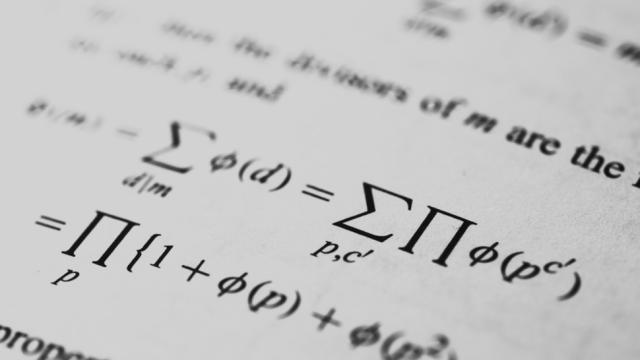Rumours are swirling that Opeyemi Enoch, a professor from the Federal University of Oye Ekiti in Nigeria, has solved the Riemann Hypothesis, a problem that has vexed mathematicians for over 150 years. Too bad it’s not true.
As reported in the BBC, The Telegraph, Yahoo! News, and many other publications, the Nigerian professor is claiming to have solved the problem, thus making him eligible for a $US1 million dollar prize. Enoch has yet to make his solution public, so his claim has yet to be verified.
The problem, posited by mathematician Bernard Riemann in 1859, involves the average distribution of prime numbers (a straightforward, relatively non-mathy explanation can be found here). It’s one of seven Millennium Problems in Mathematics, a contest run by the Clay Mathematics Institute (CMI).
Nigerian academic solves 150-year old math problem https://t.co/6KYj4wtc2i pic.twitter.com/ZrIOaiQ40F
— This Is Africa (@ThisIsAfricaTIA) November 17, 2015
Enoch told the BBC that he was motivated to solve the problem after being encouraged by his students, adding that he had no financial motivation for doing so.
The university where he teaches issued this statement:
Dr Enoch first investigated and then established the claims of Riemann. He went on to consider and to correct the misconceptions that were communicated by mathematicians in the past generations, thus paving way for his solutions and proofs to be established.
He also showed how other problems of this kind can be formulated and obtained the matrix that Hilbert and Poly predicted will give these undiscovered solutions. He revealed how these solutions are applicable in cryptography, quantum information science and in quantum computers.
A spokesperson for CMI is quoted in The Telegraph as saying: “As a matter of policy, the CMI does not comment on solutions to the Millennium Problems”
Over at the Aperiodical blog, Katie Steckles and Christian Lawson-Perfect have expressed their scepticism, saying the Riemann Hypothesis has most assuredly not been solved. They write:
Unfortunately, it looks like in this case it’s not a real proof of the Riemann Hypothesis, and this post on a Nigerian discussion forum says emphatically he has not solved it. As mentioned in that post, there’s a paper on academia.edu under his name, which is actually a copy of a paper by someone called Werner Raab (retired). Raab’s website — http://www.raab-maths.at/ is empty, and has a single broken link to “the truth of the Riemann hypothesis”. Some digging reveals that that URL has never worked. Confusingly, Enoch seems to be gathering papers about the Riemann Hypothesis on academia.edu under his own name.
The “proof” was presented at this legitimate academic conference (yes, the URL is “computer-conference-site.com”) which does appear to have taken place — although the photos don’t seem to show the kind of turnout you’d expect for presenting a result of this magnitude. Here’s the proceedings of the conference (Enoch’s presentation is “A matrix that generates the point spectral of the Riemann Zeta function”). It also looks like the local organiser of the conference is quite a character. (What’s the deal with fuzzy logic and definitely legitimate academic proceedings?)
Steckles and Lawson-Perfect say that the Riemann Hypothesis has not been cracked, but that the method supposedly being used by Enoch is one currently being tried by more well-established researchers.
